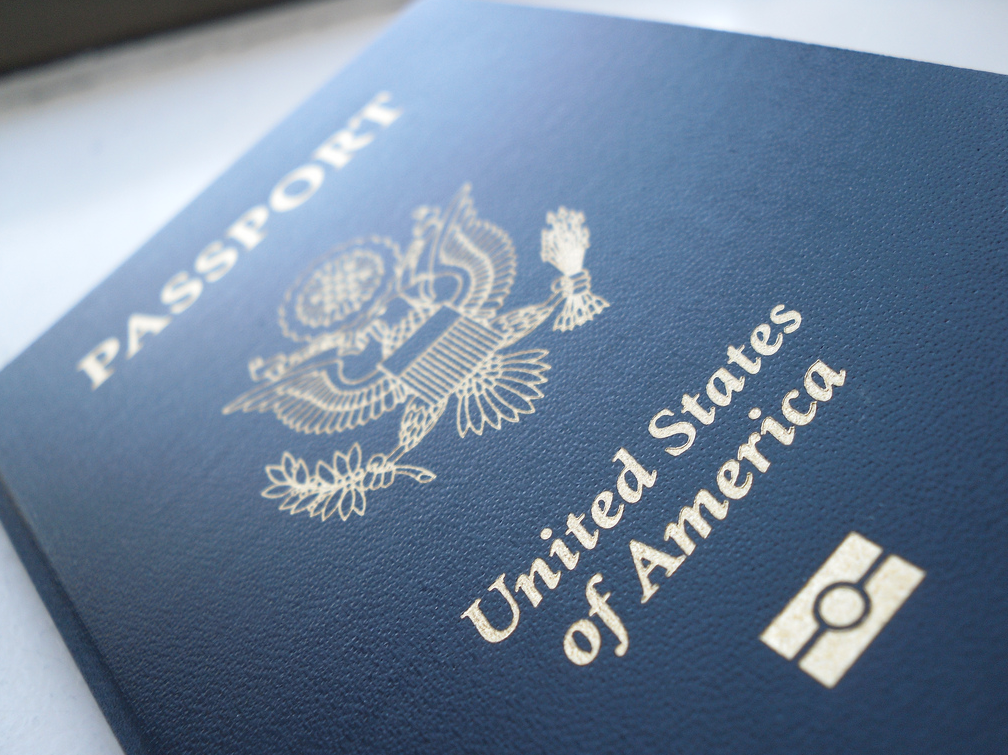|
Congratulations to Attorney Christopher Adkins for being selected as one of the 10 Best Family Law attorneys for client satisfaction for 2017 by the American Institute of Family Law Attorneys!
3 Comments
Everyone is aware that failing to pay child support is followed by a list of consequences, but just how far does this list of consequences extend? In recent years, the Child Support Enforcement Program (CSE) has added new penalties to the list in order to encourage parents to catch up on unpaid child support. One of these recently added penalties includes your privilege to travel internationally.
The Child Support Enforcement Program is a collaborative program between the federal and state government that assists children and their families with the collection and enforcement of child support awards. As part of this program, once a custodial parent requests assistance, the CSE begins to monitor and enforce all payments. As a noncustodial parent falls behind in their payments, consequences arise. Once you become more than $2,500 behind in child support, the CSE notifies the U.S. Department of State, who then enrolls you in the Passport Denial Program. Beginning in 1997, once you are enrolled into this denial program, any issuance or renewal of a passport will be denied, and any passport you are currently in the possession of will be revoked. If you are behind by more than $2,500 in your child support payments and find yourself enrolled in the Passport Denial Program, you are not stuck. To remove these restrictions and regain eligibility, you must either pay all past due payments or agree to an acceptable payments arrangement. These payments must be arranged with the appropriate state child support enforcement agency - if you owe child support in multiple states, you must complete your payments in each state before moving forward with the removal process. Once all payments have been made or you are enrolled in a payment plan, the CSE will notify the Passport Denial Program, who will then remove your name from their national child support arrearage list. This may take up to 2-3 weeks. Once your name has been removed, you must then contact the National Passport Information Center in order for the continuation of your passport application, or to recover your current passport. S-Town is sequel to the podcast Serial that takes place in a rural Alabama town. The story opens with a reporter investigating a son of a wealthy family who has been allegedly bragging that he got away with murder. As the story unfolds, there is a shift in focus from the alleged murder to John B. Mclemore, the star of the show. His eccentric outlook on life and colorful personality, keep the audience wondering what he is going to say next. The tragic death of Mclemore, sparks a nasty feud between Tyler (a friend of Mclemore) and Mclemore’s family. John’s untimely death left behind a plethora of personal belongings, a house, and a mother who had been suffering from dementia. Since John did not create a will before he died and did not arrange care for his mother in his absence, the family and Tyler were left to decide what would happen to John’s belongings and his mother. The rising popularity of this podcast, has made people wonder what would happen if this occurred in their town, who would care for their mother or gain possession of their things if they died without a will?
Dying Intestate If someone dies without a valid will, the legal terminology that is used to describe this circumstance is “dying intestate.” Under the North Carolina intestate succession laws, the person’s assets will go to the individual’s closets relatives. The only assets that are affected by intestate succession laws are assets that would have passed through an individual’s will. Typically, that includes only assets that the individual owns alone, in their own name. Property that an individual has transferred to a living trust, life insurance proceeds, and funds in retirement accounts are all examples of assets that are not affected by interstate succession laws. In addition, under interstate succession, who is entitled to what depends on whether or not the person has living children, parents, or other close relatives when they die. In Tyler’s case, since he is neither a child of John’s nor a blood relative, he would not be entitled to any of John’s possessions. Holographic Will Prior to John taking his own life, he left Tyler a text message saying that he was allowed to have certain items if he ever decides to get rid of them. In North Carolina, a text message does not count as a will. North Carolina recognizes two alternate forms of wills, known as holographic and nuncupative wills. A holographic will is a handwritten, not typed document and must be entirely in the testator’s handwriting. Holographic wills are still valid without witnesses, but it is imperative that the testator signs the document. Guardianship When John died he left behind a mother with dementia. Her deteriorating mental state and old age made her incompetent and unable to take care of herself or her personal affairs. John was her general guardian giving him the power to make personal decisions for and handle the finances of his mother. John failed to make arrangements for her prior to his death, so when he died there was a question of who would care for Johns mother, Mary Grace. Usually, in guardianship documents there are backs listed to take over the care of the ward (the incompetent adult) in the event that something happens to the guardian. If no backs are listed in the documents, then anyone can petition to be the ward’s new guardian. It is usually other family members that petition to be the ward’s new guardian. Decisions are made in the best interest of the ward. In the event that no one comes forward and petitions to be the new guardian, then a public guardian will be appointed by the courts. In John’s mother Mary Grace’s case, John’s cousin was the best person to gain guardianship over her after John died. An eviction is a process that allows a landlord to lawfully remove a tenant from the leased premises. In North Carolina, this can be a long and/or tedious process. There are four basic reasons that permit the eviction of a tenant:
When filing for an eviction, as the landlord, it is important to understand that even if the eviction is justified, the tenants can always find some way to defend themselves. Because of this, it is best that the landlord do their research before beginning the eviction process in order to know what is coming their way. Nonpayment of rent If a landlord is looking to evict their tenant due to a nonpayment of rent, the landlord must give a 10-day “notice to quit.” This notice to quit is a demand for payment by the landlord. Beginning on the day the notice is brought to the attention of the tenant, he or she has 10 days to pay their rent before the landlord is allowed to follow up with an eviction. The landlord cannot file for eviction until after the 10-day notice has been given and the tenant has failed to comply. Holdover tenant When a tenant remains on the premises after their lease or rental agreement has ended, they are known as a holdover tenant. As a landlord, you are not obligated to renew a lease with your tenant at the end of the current lease. If the landlord does not choose to renew the lease with their tenant, the tenant must then surrender possession of the property at the end of the current lease. Although a landlord has every right to not renew a lease, they are required to provide a termination notice prior to the end of the current lease. The criteria of this termination notice is listed below:
This notice of termination is also called an unconditional notice to quit, which says when the lease expires and states a deadline by which the tenant must vacate. If the tenant does not comply with the above notice, the landlord may proceed with the eviction process. Violation of Lease As a landlord, you have the legal right to evict your tenant if you find that they have violated or breached a specific condition of the lease. Such breaches may be that they have a pet even though the lease clearly states that pets are not allowed, or they have damaged property without making any reparations. Any willful or intentional damages made to the property are subject to a misdemeanor in the state of North Carolina. In a situation where a tenant has violated the lease, the landlord has no legal obligations to provide a notice before evicting the tenant. Unless the lease requires notice and an opportunity to cure, the landlord can file eviction papers upon learning of a violation. Illegal Criminal Activity For landlords looking to evict their tenant due to illegal criminal activity taking place on the premises, the state of North Carolina has an expedited eviction process. Defense by Tenants There are seven main defenses tenants may use to fight an eviction in North Carolina. While some of these defenses only relate to one or two of the reasons for eviction, most of them are applicable to all four reasons to evict a tenant.
Serving Eviction Papers in North Carolina After providing the tenant with a required notice, the landlord may then file for the eviction process through either the small claims court or the district court. It is important that the summons and the complaint are filed in the county in which the rental property is located. A complaint is a legal document that states the reasons one party seeks legal action against another. A clerk will provide a form titled “complaint in summary ejectment.” When filling out this complaint, the landlord must list all tenants whose names appear on the lease or rental agreement. A summons is a legal document that notifies a defendant (the tenant) that an action has been commenced. The summons will state a date and time on which the tenant should appear at a specified location to answer the complaint. Once the landlord has filled out all of the necessary paperwork, the county sheriff will serve the tenant with the summons and a copy of the complaint. After receiving these papers, the tenant may do one of two things: vacate the premises or fight the eviction at the eviction hearing. The tenant is not required to appear at the eviction hearing, however, it is highly recommended. If the tenant does not appear in court, it is known as a default judgment, meaning that the landlord automatically wins. After winning the eviction hearing or appeal, the landlord will then file for a “writ of possession,” which allows the landlord to forcibly remove the tenant from the premises. If the tenant remains on the property, the county sheriff will accompany the landlord and padlock the premises within seven days of receiving the writ of possession. Most married taxpayers choose to file taxes jointly due to certain benefits associated with this filing status. When a couple chooses to file a joint tax return, both taxpayers are jointly and severally liable for the tax and any additions to tax, interest, or penalties that arise from joint return, even if the couple later separates or divorces. Both joint and several liability means that each taxpayer is legally responsible for the total liability. Therefore, both spouses on a married filling jointly return are usually held liable for all the tax that is due. This is the case even if one spouse made all the income or claimed deductions or credits. This is also the case in the event that a divorce decree states that a former spouse will be responsible for any amounts due on previously filed joint returns. A situation may occur however, where a spouse gets the other spouse into a substantial amount of debt. Upon separation or divorce the innocent spouse discovers that they are in a financial crisis and wishes to alleviate some of the accumulated debt. In cases such as these, a spouse can be eligible for relief from being jointly and severally liable.
Types of Relief There are three types of relief from the joint and severally liability of a joint return. These three types are as listed:
It’s important to note that an individual seeking innocent spouse relief or separation of liability relief must request their relief no later than two years after the date the IRS first attempted to collect tax from them. An individual wishing to apply for equitable relief, must request relief during the period of the time the IRS can collect the tax from them. In the event that a person is looking for a refund of tax that they paid, then they are required to request it within the statue period for seeking a refund. This is generally three years after the date the return is filed or two years following the payment of tax, whichever is later. Refunds are not available under separation of liability relief. Requirements for Relief To seek innocent spouse relief, separation of liability relief, or equitable relief, an individual should submit to the IRS a completed form 8857. Request for Innocent Spouse Relief, or a written statement containing information required on Form 8857 which is signed under penalties of perjury. The IRS is required to notify the spouse you filed jointly with and allow him or her to provide information for consideration. Finally, in order to qualify for innocent spouse relief, separation of liability relief, and equitable relief an individual must meet all of the qualifications. - Innocent Spouse Relief
- Separation of Liability Relief
- Equitable Relief
Adults who plan their vacations in accordance to their work schedule experience difficulty when attempting to coordinate with their family’s busy activities. This is especially true with adults who share custody of their children with another parent. Parents who take their child across state lines in violation of a custody order can expose themselves to contempt of court charges and, potentially, charges of parental kidnapping.
Custody Order In some cases, adults share custody of their children under a court order that addresses the issue of out-of-state travel. In the event that the order allows or in does not prohibit traveling across state lines, a parent is permitted to travel with their children from state to state. However, it is imperative that traveling parents look for restrictions on their custody order. A common restriction in such an order is that the traveling parent must receive consent from the other parent to take the kids out of state. Even if the order does not require it, it is best to get the other parent’s consent in writing. Written consent could be helpful in case a dispute arises in the future. During Travel While traveling out of state, keeping the other parent informed of the itinerary can help ease tension. In most cases this is not a requirement. However, if the parent fails to abide by the terms of the court order or written permission of the other parent, the traveling parent could face civil or criminal penalties. A federal or state warrant may also be issued and the parent may face charges under the International Parental Kidnapping Crime Act. Custody Order Not in Place In some instances, parents want to travel out of state with their child, but custody is still pending or no order is in place. In this case, it is wise to seek the consent of the other parent or receive court approval. Establishing a record of unilateral actions without consulting the other parent can make a judge believe that that parent will not be able to effectively co-parent, and could potentially lead to modification of an existing custody order. A Notary Public is an official of integrity who is typically appointed by the secretary of state to serve the public as an impartial witness in performing a variety of fraud deterrent acts related to signing of important documents. Notaries are publicly known as “ministerial” officials, meaning that they are expected to abide by written rules without the use of significant personal discretion.
Duty of Notary Public A Notary’s duty is to vet the signers of important documents. Such documents include property deeds, wills, and powers of attorney. The key things that Notaries screen for is making sure that the singer’s identity is true, that the singers are signing documents willingly and not under duress or intimidation, and that the signer is aware of the contents of the document or transaction. Additionally, some notarizations require the Notary to put the singer under an oath, declaring under penalty of perjury that the information in a document is true or correct. Above all else impartiality is the foundation of the Notary’s public trust, as would otherwise be the case with a judicial official. They are duty bond to refrain from acting in situations where they have a personal interest. The public trusts that the Notary’s screening process has not been tainted by self-interest. Furthermore, impartiality dictates that a Notary never refuse to serve a person due to race, nationality, religion, politics, and sexual orientation. Qualifications of Notary Public There are specific qualifications laid out by the Department of the Secretary of State to become qualified for notarial commission. An applicant must meet all of the following qualifications:
How to become a Notary Public There are eight steps involved in becoming a Notary Public in North Carolina. An individual wishing to become a Notary Public must abide by each of the following steps:
|
Archives
January 2022
|
Lake Norman Location
9620 Sherrill Estates Road
Huntersville, North Carolina 28078
(704) 274-5677 main
(704) 231-5762 text
(877) 208-7577 fax
9620 Sherrill Estates Road
Huntersville, North Carolina 28078
(704) 274-5677 main
(704) 231-5762 text
(877) 208-7577 fax







